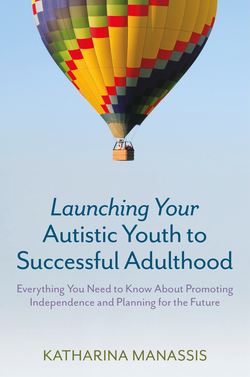Читать книгу Launching Your Autistic Youth to Successful Adulthood - Katharina Manassis - Страница 6
На сайте Литреса книга снята с продажи.
Chapter 1 Challenges with the Transition
to Adulthood in ASD
ОглавлениеPerhaps you are worried about what will happen to your youth when high school ends; perhaps you don’t know what to expect; perhaps your youth is already struggling to adapt to the adult world and you are eager to help but unsure how to do so. In all of these situations, it is helpful to know what transitional challenges are common. Knowing that others have the same challenges your youth may be facing is reassuring: your family is not alone in this struggle. Moreover, understanding the reasons for the challenges puts you in a good position to find solutions.
To begin, let’s look at common transitional challenges and their causes. Here is a rather extreme example of what can go wrong in the transition from high school to adulthood, intended to stimulate our thinking about how to get it right.
Robert was on the autism spectrum and had significant learning disabilities, but was verbal and motivated to learn. He attended high school in a special class for autistic youth, but was mainstreamed part of the day with the help of an educational assistant. His mainstream courses included daily physical education. He also participated in the school canoeing club, where he was well-liked for his quirky sense of humor. He went to the movies regularly with a few of his classmates. The boys’ parents took turns driving them to the theatre. In his last year, Robert spent half days at a cooperative education placement in a local store which was within walking distance of the school. By the end of the term, he bragged that he knew the way to the shop better than his educational assistant did! Despite his learning disabilities, Robert appeared relatively high functioning in high school.
Things changed dramatically, however, when high school ended. Robert and his parents met with a guidance counselor about his post-secondary plans. As Robert’s English courses had been below college level, she advised looking into vocational schools or getting some work experience. She reassured his parents that a government-funded disability service organization would help the family explore these options. All they had to do was send in Robert’s most recent psychological evaluation. They did so a few months before his graduation.
The day before Robert graduated, a letter arrived from the disability service organization. The letter indicated that, despite Robert’s significant autism-related impairments, he was not eligible for their services as his IQ was just barely over 75. Eligibility for their services depended upon having an IQ below 75, regardless of the person’s ability to function in daily life. A local employment agency for disabled adults was recommended. Unfortunately, the worker at this agency had plenty of experience finding jobs for people with physical disabilities but no experience working with those on the autism spectrum. Furthermore, the worker refused to speak to Robert’s parents, citing Robert’s right to privacy as he had recently turned 18.
After several discouraging attempts to find work, Robert became increasingly withdrawn. He spent most of his time at home playing his favorite video game. As he did not need to get up at a regular time, he soon spent more time sleeping during the day than at night. As he snacked while playing and no longer engaged in physical activities, he gained weight. Robert’s classmates dispersed to different places after high school. Some were eligible for college, others were able to work with the disability service organization, and still others had families who owned businesses where they could work. Robert did not see any of them regularly anymore. With no social life apart from his online contacts, Robert’s verbal and social abilities declined. When his parents tried to talk to Robert, he now responded only in grunts.
Concerned about their son’s deterioration, Robert’s parents argued about how to best help him. His mother advocated an expensive private vocational school; his father argued, “He’s just lazy and lacks motivation. No further schooling will change that.” The more his parents fought, the more Robert withdrew. Soon, his younger brother started skipping school, asking, “Why does Robert get to stay home when I don’t?” There were further parental arguments about the brother’s defiance.
Alarmed at Robert’s passivity and deteriorating health, his family doctor referred him to a psychiatrist. The reason for referral was “Appears depressed. Please recommend appropriate medication.” He also referred Robert to a socialization group for autistic youth, but Robert did not attend.
